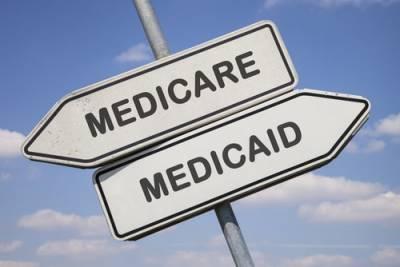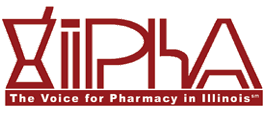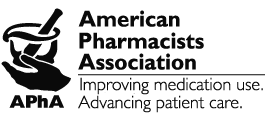Recent Blog Posts
What Happens During a Medicare/Medicaid Audit of a Medical Provider?
 Most medical providers, including doctor’s offices, hospitals, pharmacies, and other types of medical professionals, provide services to patients and accept payments through Medicare or Medicaid. Providers must meet a variety of requirements when doing so, and the Centers for Medicare and Medicaid Services (CMS) is tasked with ensuring that providers are in compliance. CMS may conduct audits of providers based on billing irregularities, issues related to record-keeping, or other concerns about potential noncompliance. During these types of audits, providers will want to understand the process that will be followed and the requirements they must meet. Failure to comply with CMS requirements or cooperate during an audit could result in the provider being excluded from providing services through Medicare or Medicaid.
Most medical providers, including doctor’s offices, hospitals, pharmacies, and other types of medical professionals, provide services to patients and accept payments through Medicare or Medicaid. Providers must meet a variety of requirements when doing so, and the Centers for Medicare and Medicaid Services (CMS) is tasked with ensuring that providers are in compliance. CMS may conduct audits of providers based on billing irregularities, issues related to record-keeping, or other concerns about potential noncompliance. During these types of audits, providers will want to understand the process that will be followed and the requirements they must meet. Failure to comply with CMS requirements or cooperate during an audit could result in the provider being excluded from providing services through Medicare or Medicaid.
Steps Followed in a CMS Audit
The Medicare/Medicaid audit process has four phases:
When Can Disciplinary Issues Lead to a Loss of Hospital Privileges?
 For many medical professionals, including doctors, surgeons, nurses, and physician assistants, the ability to provide services for patients in hospitals is crucial to their practice. Whether a person is a full-time staff member at a hospital or has courtesy privileges or surgical privileges, being able to see and treat patients at the hospital will ensure that they can provide quality medical care. This means that medical professionals will want to be aware of any issues that could lead to the loss of hospital privileges. By defending against this form of discipline, providers can avoid issues that may affect their medical license and their overall career.
For many medical professionals, including doctors, surgeons, nurses, and physician assistants, the ability to provide services for patients in hospitals is crucial to their practice. Whether a person is a full-time staff member at a hospital or has courtesy privileges or surgical privileges, being able to see and treat patients at the hospital will ensure that they can provide quality medical care. This means that medical professionals will want to be aware of any issues that could lead to the loss of hospital privileges. By defending against this form of discipline, providers can avoid issues that may affect their medical license and their overall career.
Reasons for Loss of Hospital Privileges
In some cases, a person may face discipline to their hospital privileges due to issues involving the hospital. Accusations of substandard patient care or malpractice that occurred at the hospital may cause the hospital’s review board to take disciplinary action. These actions may involve a limitation on a person’s privileges, a temporary suspension of privileges, or a permanent revocation of the ability to see and treat patients at the hospital.
How Can Medical Professionals Avoid Accusations of Drug Diversion?
 Doctors, nurses, pharmacists, and other medical professionals can face a great deal of scrutiny as they provide services to patients, especially when they prescribe or dispense controlled substances. In some cases, a professional may be accused of drug diversion, in which controlled substances are provided to patients for non-medical purposes or allowed to be illegally sold or delivered outside of the medical supply chain. Drug diversion is a serious offense, and it may lead to the suspension or revocation of a provider’s DEA registration, as well as the loss of a medical license, criminal charges, and other penalties. To avoid these types of consequences, medical professionals will want to make sure they are following the correct policies and procedures regarding controlled substances.
Doctors, nurses, pharmacists, and other medical professionals can face a great deal of scrutiny as they provide services to patients, especially when they prescribe or dispense controlled substances. In some cases, a professional may be accused of drug diversion, in which controlled substances are provided to patients for non-medical purposes or allowed to be illegally sold or delivered outside of the medical supply chain. Drug diversion is a serious offense, and it may lead to the suspension or revocation of a provider’s DEA registration, as well as the loss of a medical license, criminal charges, and other penalties. To avoid these types of consequences, medical professionals will want to make sure they are following the correct policies and procedures regarding controlled substances.
When Can Criminal Charges Lead to the Loss of a Professional License?
 Licensed professionals invest a great deal of time, money, and effort to obtain the necessary education and training to practice in their chosen profession. After meeting all the requirements to obtain a professional license, a person will want to make sure they can maintain their license and avoid any issues that could affect their ability to continue working. Professionals should be aware that certain types of criminal convictions could lead to disciplinary action, and they will want to work with an attorney to address these issues and avoid the loss of their license.
Licensed professionals invest a great deal of time, money, and effort to obtain the necessary education and training to practice in their chosen profession. After meeting all the requirements to obtain a professional license, a person will want to make sure they can maintain their license and avoid any issues that could affect their ability to continue working. Professionals should be aware that certain types of criminal convictions could lead to disciplinary action, and they will want to work with an attorney to address these issues and avoid the loss of their license.
Criminal Convictions That May Lead to License Suspension or Revocation
The Illinois Department of Financial and Professional Regulation (IDFPR) oversees licensed professionals, and it may choose to pursue disciplinary action against those who are convicted of certain types of crimes. Offenses that could lead to the suspension or revocation of a professional license include:
Illinois Medical Licensing and Authorization to Administer COVID-19 Vaccines
 For more than a year, the COVID-19 pandemic has caused interruptions to many people’s daily lives and activities. Fortunately, an end to this situation is in sight as vaccines are administered to people throughout the United States. To ensure that as many people can be vaccinated as quickly as possible, officials are taking an “all hands on deck” approach, and multiple different types of medical professionals have been authorized to administer these vaccines. To avoid any issues that could affect a person’s medical license, it is important to understand what steps should be followed to obtain authorization to administer vaccines, and medical professionals will want to make sure they are following the correct procedures at all times.
For more than a year, the COVID-19 pandemic has caused interruptions to many people’s daily lives and activities. Fortunately, an end to this situation is in sight as vaccines are administered to people throughout the United States. To ensure that as many people can be vaccinated as quickly as possible, officials are taking an “all hands on deck” approach, and multiple different types of medical professionals have been authorized to administer these vaccines. To avoid any issues that could affect a person’s medical license, it is important to understand what steps should be followed to obtain authorization to administer vaccines, and medical professionals will want to make sure they are following the correct procedures at all times.
Who Can Administer COVID-19 Vaccines in Illinois?
Governor J.B. Pritzker has declared a public health emergency in the state of Illinois and issued emergency orders to allow certain types of licensed professionals to administer COVID-19 vaccines. Those who are allowed to administer vaccines include:
Requirements for Doctors and Nurses in Medical Marijuana Certifications
 Over the past decade, marijuana has been recognized as a substance that can provide patients with a number of medical benefits. Many states, including Illinois, have authorized the use of medical marijuana for patients with certain types of conditions. However, doctors, nurses, or other medical professionals will need to make sure they are following the correct procedures and meeting all requirements when certifying patients to use medical marijuana. Failure to do so could result in disciplinary action by the Illinois Medical Board, the Illinois Board of Nursing, or another division of the Illinois Department of Financial and Professional Regulation (IDFPR).
Over the past decade, marijuana has been recognized as a substance that can provide patients with a number of medical benefits. Many states, including Illinois, have authorized the use of medical marijuana for patients with certain types of conditions. However, doctors, nurses, or other medical professionals will need to make sure they are following the correct procedures and meeting all requirements when certifying patients to use medical marijuana. Failure to do so could result in disciplinary action by the Illinois Medical Board, the Illinois Board of Nursing, or another division of the Illinois Department of Financial and Professional Regulation (IDFPR).
Health Care Professional Certifications for Medical Cannabis
Before applying for a medical cannabis registry identification card, patients in Illinois will need to receive a certification from a medical professional stating that they have a qualifying debilitating condition. Health care professionals that can provide this certification include medical doctors, doctors of osteopathic medicine, advanced practice nurses, physician assistants, and advance practice registered nurses with full practice authority.
How Can a Medical Provider Avoid Being on the OIG Exclusion List?
 Around 28% of all health care services in the United States are paid for through Medicare, Medicaid, or other federal programs. Because of this, health care providers need to comply with all applicable requirements, since being unable to provide services through these programs can eliminate a major source of revenue. The Office of Inspector General (OIG) for the federal Department of Health and Human Services (HHS) maintains a List of Excluded Individuals/Entities (LEIE), and any providers or organizations that are included on this list cannot receive payments from federal healthcare programs. Medical providers will want to understand the issues that could cause them to be included on this list and the actions they can take to prevent exclusion from Medicare or Medicaid programs.
Around 28% of all health care services in the United States are paid for through Medicare, Medicaid, or other federal programs. Because of this, health care providers need to comply with all applicable requirements, since being unable to provide services through these programs can eliminate a major source of revenue. The Office of Inspector General (OIG) for the federal Department of Health and Human Services (HHS) maintains a List of Excluded Individuals/Entities (LEIE), and any providers or organizations that are included on this list cannot receive payments from federal healthcare programs. Medical providers will want to understand the issues that could cause them to be included on this list and the actions they can take to prevent exclusion from Medicare or Medicaid programs.
Reasons for Exclusion
In many cases, a provider may face exclusion by the OIG due to charges of health care fraud or other offenses. The OIG has the discretion to issue a permissive exclusion if a provider is convicted of misdemeanor health care fraud or a misdemeanor related to illegal prescribing or dispensing of controlled substances or if their medical license has been suspended or revoked. Felony convictions for healthcare fraud or controlled substances, convictions related to abuse or neglect of patients, or any convictions for fraud against Medicare or Medicaid will result in a mandatory exclusion.
Steps You Can Take to Avoid Losing Your Medical License
 Doctors, nurses, and other medical professionals are required to maintain a valid medical license in order to provide treatment to patients. The requirements to obtain a license are extensive, and providers will need to remain in good standing and meet additional requirements when applying for the renewal of their medical license. Medical professionals should also be aware that they could face disciplinary action by the Illinois Medical Board, the Illinois Board of Nursing, or other divisions of the Illinois Department of Financial and Professional Regulation if they are accused of violating laws or professional standards. To avoid discipline that could result in the loss of your medical license, you will want to do the following:
Doctors, nurses, and other medical professionals are required to maintain a valid medical license in order to provide treatment to patients. The requirements to obtain a license are extensive, and providers will need to remain in good standing and meet additional requirements when applying for the renewal of their medical license. Medical professionals should also be aware that they could face disciplinary action by the Illinois Medical Board, the Illinois Board of Nursing, or other divisions of the Illinois Department of Financial and Professional Regulation if they are accused of violating laws or professional standards. To avoid discipline that could result in the loss of your medical license, you will want to do the following:
- Do not engage in unprofessional or unethical conduct - Medical providers can face discipline for a wide variety of actions that violate ethical standards or are likely to harm patients. These may include gross negligence when providing medical care, making misleading statements about a person’s qualifications or the forms of treatment they are suggesting, promoting certain drugs or medical devices for financial gain, overcharging for services, or engaging in sexual misconduct. By following accepted standards and practices and avoiding inappropriate behavior, you can ensure that you will not be accused of unprofessional conduct.
How Should Healthcare Providers Respond to OIG Investigations?
 For healthcare providers such as doctors, nurses, psychologists, physical therapists, or pharmacists, notification that their practice is being investigated by an Office of Inspector General (OIG) can be very concerning. A state or federal OIG will look into reports of healthcare fraud or forms of waste or mismanagement involving Medicare or Medicaid. Depending on the results of an investigation, a provider may face a number of consequences, including exclusion from these programs or even criminal charges. To avoid these issues, it is crucial for providers to secure representation from an experienced attorney as soon as they are aware of an OIG investigation.
For healthcare providers such as doctors, nurses, psychologists, physical therapists, or pharmacists, notification that their practice is being investigated by an Office of Inspector General (OIG) can be very concerning. A state or federal OIG will look into reports of healthcare fraud or forms of waste or mismanagement involving Medicare or Medicaid. Depending on the results of an investigation, a provider may face a number of consequences, including exclusion from these programs or even criminal charges. To avoid these issues, it is crucial for providers to secure representation from an experienced attorney as soon as they are aware of an OIG investigation.
What Is the Office of Inspector General?
Different departments of the federal government and state governments have their own Offices of Inspector General. These offices are tasked with uncovering fraud, waste, or abuse that results in financial losses for government programs. Since Medicare is a federal program, the Office of Inspector General for the federal Department of Health and Human Services will investigate cases related to this program. Medicaid is administered at the state level, so the applicable state Office of Inspector General will usually investigate allegations of fraud or waste involving this program.
Should I Voluntarily Surrender My DEA Registration?
 For medical providers who prescribe or dispense controlled substances, maintaining a valid DEA registration is a crucial requirement that is necessary to continue providing services to patients. In some cases, these providers may be subject to DEA investigations and enforcement of laws and regulations related to controlled substances. The DEA is aggressive in its efforts to combat the illegal distribution of drugs, and agents will often threaten a provider and state that they could face criminal consequences, but this could be avoided if a person voluntarily surrenders their DEA registration. However, providers should understand that doing so is an irrevocable step that is likely to have a variety of negative effects on their medical license, their practice, and their career.
For medical providers who prescribe or dispense controlled substances, maintaining a valid DEA registration is a crucial requirement that is necessary to continue providing services to patients. In some cases, these providers may be subject to DEA investigations and enforcement of laws and regulations related to controlled substances. The DEA is aggressive in its efforts to combat the illegal distribution of drugs, and agents will often threaten a provider and state that they could face criminal consequences, but this could be avoided if a person voluntarily surrenders their DEA registration. However, providers should understand that doing so is an irrevocable step that is likely to have a variety of negative effects on their medical license, their practice, and their career.
















